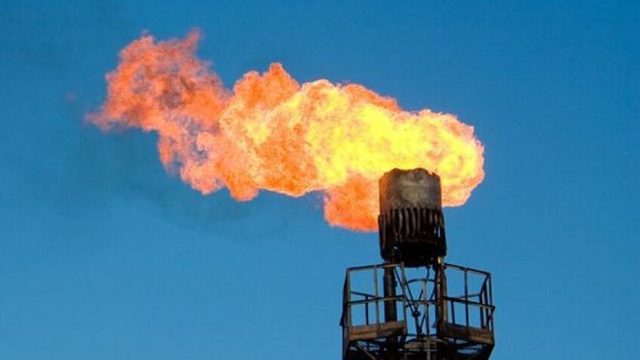Nigeria loses N34.1bn to gas flaring – Report
The National Oil Spill Detection and Response Agency (NOSDRA) said oil and gas companies operating in Nigeria flared a total of 12.7 million standard cubic feet (mscf) of gas in July 2023.
The agency which disclosed this in its latest report put the value of gas flared at $44.3 million or N34.1 billion – at the Central Bank of Nigeria’s (CBN) current official exchange rate of N768.77/$.
The figure represents a 35 per cent increase when compared to 9.4 mscf of gas flared in the corresponding period of 2022.
NOSDRA also stated that the defaulting companies paid fines totaling $25.3 million or N19.4 billion.
According to NOSDRA, the volume of gas flared during the period under review was equivalent to carbon dioxide emission of 673.1 thousand tonnes and had a power generation potential of 1,300 gigawatts hour (GWh).
Giving a further breakdown of the volume of gas flared across oilfields, NOSDRA reported that companies operating offshore flared 5.1 mscf while companies operating onshore flared 7.6 mscf.
NOSDRA lamented that despite efforts to reduce gas flaring, it has continued in Nigeria since the 1950s, releasing carbon dioxide and other gaseous substances into the atmosphere.
The National Oil Spill Detection and Response Agency (NOSDRA) said oil and gas companies operating in Nigeria flared a total of 12.7 million standard cubic feet (mscf) of gas in July 2023.
The agency which disclosed this in its latest report put the value of gas flared at $44.3 million or N34.1 billion – at the Central Bank of Nigeria’s (CBN) current official exchange rate of N768.77/$.
The figure represents a 35 per cent increase when compared to 9.4 mscf of gas flared in the corresponding period of 2022.
NOSDRA also stated that the defaulting companies paid fines totaling $25.3 million or N19.4 billion.
According to NOSDRA, the volume of gas flared during the period under review was equivalent to carbon dioxide emission of 673.1 thousand tonnes and had a power generation potential of 1,300 gigawatts hour (GWh).
Giving a further breakdown of the volume of gas flared across oilfields, NOSDRA reported that companies operating offshore flared 5.1 mscf while companies operating onshore flared 7.6 mscf.
NOSDRA lamented that despite efforts to reduce gas flaring, it has continued in Nigeria since the 1950s, releasing carbon dioxide and other gaseous substances into the atmosphere.

























































